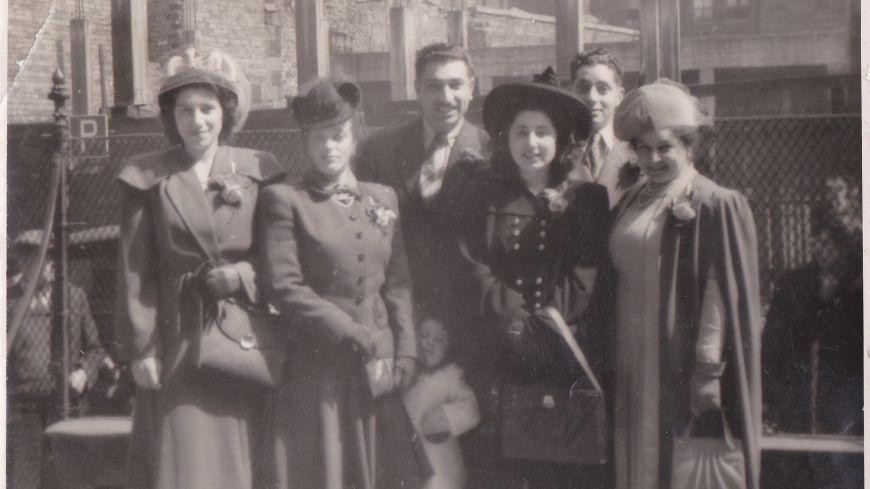
A feminine view of Italian immigration.
‘A story of Women’s Courage, Sisterhood and Pride’ is the strapline of the play’s programme. Artistic director of the Scottish based international company Charioteer Theatre, Scots Italian Laura Pasetti, was given the remit by the University of Edinburgh as part of the Italian-Scottish Research Cluster project (ISRC) to produce a script based on interviews collected over years by academics about the experiences of Italian immigrants to Scotland between 1850 and 1950. The result is the work in progress, A Bench on the Road. Pasetti, a playwright, director and drama teacher who collaborates with the Accademia del Teatro alla Scala and the Piccolo Teatro di Milano, has elected to give voice to the women in these stories.
On stage in the grand upstairs room in Summerhall, the six black clad actors were already poised in what turned out to be a very long tableau as eager crowds packed in to the sadly limited space to see this embryonic premièred piece. The women held their poses admirably, and in some cases likely uncomfortably, as they stood gathered round the cardboard cases, bundles, bags and baskets that held their worldly goods. Whooping gull sounds accompanied them on their anxious journey across the sea to a new life in Scotland.
With only some simple props on the small stage including a very Scottish creepie stool, the women’s stories of survival were told through a beautiful tapestry of language: a lyrical weaving of Italian, Scots and English. Told from the perspectives of mothers, wives, daughters and brides, the sense of separation and longing is clear throughout the plaintive performance from this mix of Italian and Scots actors.
The chorus of purse lipped porridge stirring white hatted Scots women dance the pas de basque (coloquially called the paddie bar!) and the Italians dance the Tarantella, though not in the same scene. Control versus passion; Catholic versus Presbyterian. While enjoying the pleasures of fish and chips and ice cream during the week, such indulgences on the Sabbath were an anathema to puritan Scots and a source of bewilderment to the Italians.
The slightly confusing funereal scene where the women are marching in defiance, are shot down yet rise again and again, has an air of Candide. This and other scenes were entwined with song that were well accompanied by accordionist Lizy Stirrat whose skills could be used more as that particular instrument with its universal roots always adds emotive notes.
The colour white is used as a symbol of hope and friendship and it is a white shoe that is offered as a gift of acceptance as former friends revert from enemies; when the shared bench, so symbolic of a place where strangers can meet and share, reverts from barricade to bench again.
A 3 star review seems appropriate for a work in progress but this admirable ensemble piece is laden with promise, its circular nature indicating the perpetuity of human movement in this troubled world. Its potent story holds a universal message at a time when Italy itself is facing immigration from troubled parts of the wider world and fully deserves to be taken to completion. Scots Italians represent a large ethnic group in Scotland and recently more young people are leaving Italy in search of a new life in other European countries. As one of the play’s characters says, “Jesus was a foreigner.”
There were short speeches at the end from Stefania del Bravo, Director of ICIE and Laura Pasetti that were followed by brief Q & A session.
The project has involved the collaboration and support of the Italian Universities of Milan and Rome, and the Scottish Universities of Edinburgh and St. Andrews. A Bench on the Road was presented as a work in progress with the support of Creative Scotland and the patronage of Piccolo Teatro di Milano on Friday 20th February 2015 at Summerhall, Edinburgh at 7.30 pm.

